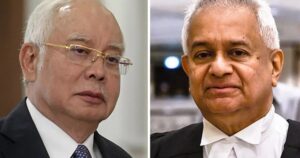
A Kuala Lumpur NGO has warned that residents stand to lose the most under City Hall’s (DBKL) newly-introduced planning rules that no longer require mandatory public consultation for some development projects.
While DBKL has said that stakeholder consultations would remain for key projects, Save Kuala Lumpur (SKL) chairman M Ali expressed his concern that the new rules would benefit vested commercial interests more than those of residents.

Ali was responding to reports of the introduction of the Federal Territory of Kuala Lumpur Planning Rules 2025 that exempts notification to and consultation with stakeholders for certain projects.
The new rules, which are subsidiary legislation of the Federal Territory (Planning) Act 1982, also dispense with environmental, social, and traffic impact assessments.
However, DBKL clarified on Wednesday that stakeholder consultations are still mandatory for specific types of developments, including high-density projects or temporary developments.
DBKL also stressed that developers are still required to engage stakeholders before, during, and after the construction of all developments.
It said this was to “clearly explain the planned development and the benefits it will bring to the local community”, but there is no word on whether stakeholders can actually raise concerns or objections.
Neither has it been clarified if objections are raised, developers will be required to act on them. This lack of clarity has become a major concern for residents.
Ali said it would not prevent developers from “bulldozing” their way through the development process for some projects, thus sidestepping the concerns of residents.
“There seems to be a trend (for the government) to just take care of commercial and business interests. We are not against development, but we want balanced and sustainable development with the primary interests of residents to be given priority,” he told FMT.
Ali said that while residents could take legal action over unwanted developments, it is an expensive process that could take many years. He added that many residents’ associations in Kuala Lumpur did not possess the funds or legal knowledge to take such a step.
“We have always maintained that there must be engagement with residents. The public hearing must prevail above everything else and there must be public engagement on any development that changes the character of the community,” he added.

SKL secretary Charles Tan and Peter Leong, policy adviser to Kuala Lumpur Residents Action for Sustainable Development Association (KLRA+SD), discovered the introduction of the new planning rules “by chance”.
Tan told FMT they came across a public notice on planning changes that was published in a local newspaper in July.
He said a visit to the Federal Gazette website later confirmed the change, which was gazetted on June 13.

KLRA+SD chairman Tan Booi Charn said DBKL officers should act as moderators in engagements between developers and residents.
Playing the role of “referee”, she said, the officers could prevent any attempt to raise conflicting information by either party.
On the issue of development plans, Tan noted that even when one has been approved, such as the Kuala Lumpur Local Plan 2040 (PTKL 2040), it was still subject to change by the authorities.
For instance, she said, the Kampung Bohol flood retention pond was degazetted to make way for a housing project although it was earlier meant to be preserved under the PTKL 2040.
“When a violation (of the PTKL 2040) occurs, especially when it was done by the authorities, how can you say that there is no need for public consultation?”
Tan said the new rules would make it difficult for residents to raise queries on the specifications of new building projects such as building height, density, and traffic flow.
She said these specifications could not be amended once a development order for the project had been granted by DBKL.
She acknowledged that residents could file a legal challenge within 90 days of the development order being issued. However, she said, it would be more difficult to do so now as planning changes would no longer be publicised for all projects unlike in the past.
“There are many obstacles (to file legal challenges). Not many communities are like Taman Rimba Kiara. They had very good support from their MP and they had to crowdfund to support their legal battle.”
Separately, Taman Tun Dr Ismail resident Khairuddin Rahim said civil society members should challenge the new rule in court.
“People must partner with our best legal minds to undo this handover of absolute power to the mayor. For proper governance, all government institutions must operate with check and balance,” he added.






